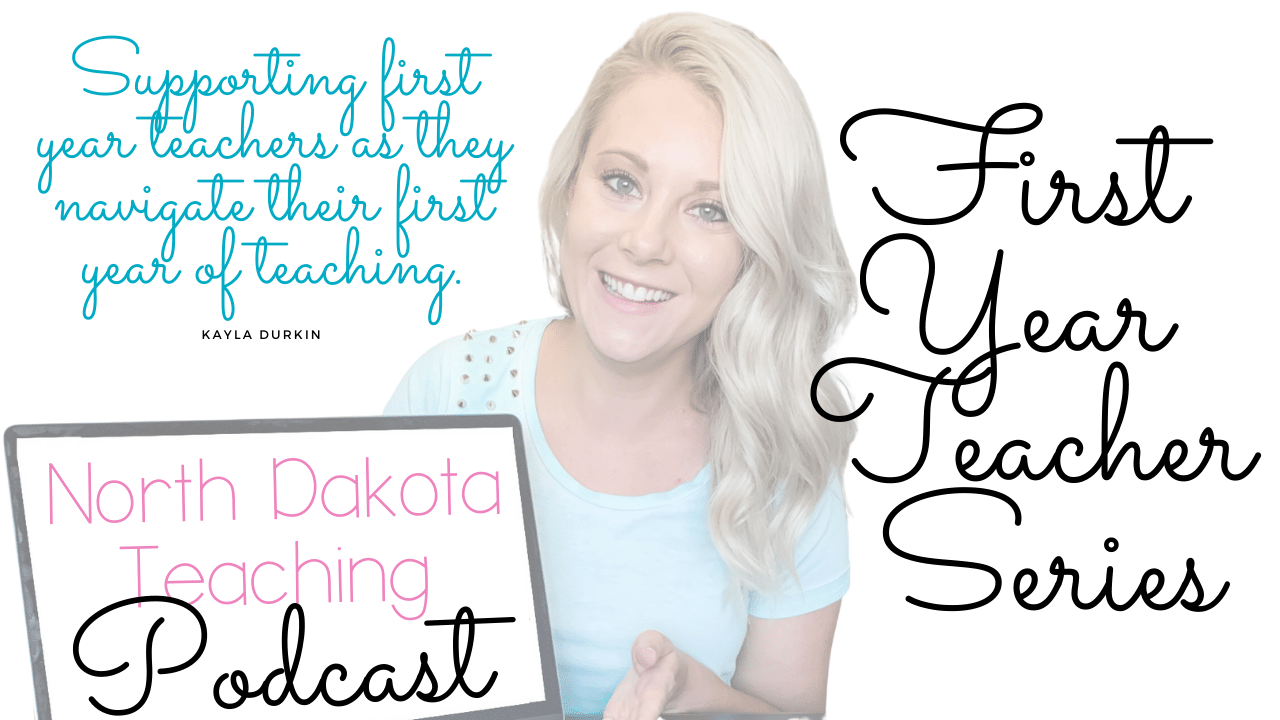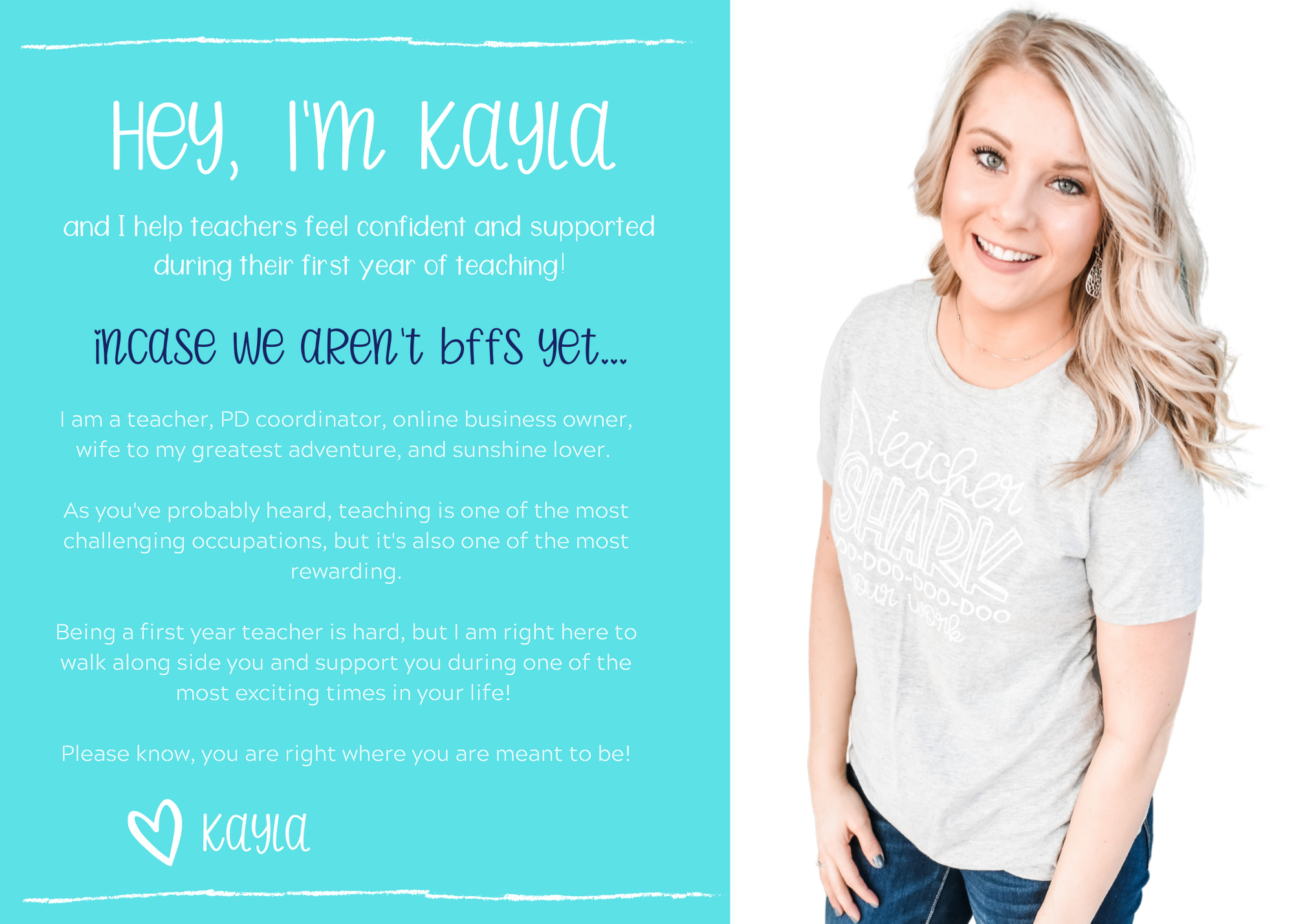Recognizing Anxiety in Students
Recognizing Anxiety in Students
Hey hey, friend! If you’re new here, this platform is all about supporting first year teachers during their first year of teaching, but as always, we welcome all educators whether you’re student teaching, a first year teacher, or you’ve been teaching for a while.
Unless you’ve been living under a rock, you’re probably very aware that there has been a lot going on in the world lately. Because of this, I thought it would be appropriate to talk about recognizing anxiety in students.
Recognizing signs of anxiety in students is a topic that is near and dear to my heart and I know it’s so important for all educators to hear.
Before we get started though, let’s take a few minutes and do some reflecting.
Reflecting on Signs of Anxiety
Over the next few minutes you’re going to be reading a series of questions. If you have paper and a pencil near by, feel free to grab it so that you can write your responses down. It will be great to be able to look back on your answers when we are done.
If you don’t have paper or a pencil, consider opening up your notes app and typing these, or at least make note of these mentally.
Okay, let’s get started - I want you to think of some times that you have felt anxious or overwhelmed and again, if you can, write these down, if not, take a mental note.
List a few times that you have felt anxious or overwhelmed in a situation
What caused you to feel anxious?
What symptoms or signs did you have of feeling anxious?
How did you respond ?
How did you treat others?
Did you talk to anyone about the way you were feeling?
If you didn’t, why didn’t you, if you did, did it help, why or why not?
When did your anxious feelings go away?
I don’t want to say feeling anxious is normal, because I don’t want a normal part of life to feel so icky, but I do want you to know that most people do go through seasons or times in their life when they have felt anxious or overwhelmed.
For me, when I am feeling anxious or overwhelmed I tend to be shorter with my husband, I tend to shut down, I internalize everything, and more times than not, my coping mechanism is to do something mindless, such as watching TV.
Student Anxiety At School
So let’s flip things a little bit and start brainstorming why students might have anxiety.
Take sometime to think about why you might see student anxiety in the classroom -
Did you come up with any of these reasons?
Peers - Friend drama, recess, lunch, gym, bullies, lonely
Assignments, projects, tests
Appearance - clothes, hair, acne, made fun of
Perfectionist
Home Life - Abuse, drugs/alcohol, divorced parent weekend, parent back in town/away on a trip
Behavioral Signs of Anxiety
If you’ve witnessed anxiety in students, what type of behavior was displayed?
More easily noticed behaviors might be:
Withdrawn
Refusal
Anger
Avoidance
Less obvious signs:
Stomach aches
Out of Control - irritable, emotional
Loud
Talkative
Physical Signs of Anxiety
When these are bigger issues, some signs and symptoms might be:
Appearance change
Emotional change
Social Changes
Sleep deprived/exhausted
Lower school performance
Missing school often/repeated tardies
Panic attacks
How to Help Students with Anxiety
We want to be proactive and find out why these behaviors are being displayed.
So how do we help:
Smaller, occasional/situational:
Talk with students, get on their level, connect with them, daily check-ins, have lunch together
Accommodate for them - separate testing environment
Be compassionate, offer empathy
Deep breathing
Offer breaks
Quiet time
Cool down corner
When it seems like a big deal, remember, you are a mandate reporter:
Document
Seek support from admin, counselors, OT’s, Special Ed, Psyche, etc.
Contact home - Short, brief, objective
Anxiety comes in many different forms and can come on at a moments notice - Be in-tune to how students are acting. If it doesn’t seem like them, talk to them, show them you care, ask how you can help. It might take some time though and they might not be ready to talk. They might need some space, but continually show them you are there for them. Also remember, they might be more comfortable talking to someone else. Perhaps a previous teacher, counselor, etc.
Grab those notes that you started at the beginning of this post -
Think back to how you felt when you’ve been anxious. How you acted. How you treated people. How you coped.
Most of us who are reading this are probably 20+ years old; we have had years of learning how to cope and yet we still get anxious and we still have a hard time regulating our emotions. However, some of our little learners don’t know how to channel those feelings, yet. They need your help and support every single step of the way. It’s not going to be a one time redirection either; it’s going to take time. As much as it is our job to help them with math and reading, we also need to find ways to help support them emotionally as well.
If you have a student or you know of a student who is struggling, seek out help. Ask for someone to observe them. Talk to a trusted professional. Mental health is not something we want to take lightly, and we need to begin taking action as soon as we possibly can!
- Kayla
FIRST YEAR TEACHER SUPPORT PODCAST
How do you feel about podcasts? I’ll admit, I wasn’t super into them at first either. However, once I realized the impact they can make, I was hooked.
I have a First Year Teacher Series Podcast that is streaming on all platforms. Through this podcast, I have had the incredible opportunity to interview first year teachers during their first few months in the classroom, share teaching tips, lessons, ideas, and so much more!
And guess what, I release a new episode every Wednesday! Whether you’re driving to school, driving to the gym, or folding some laundry at home, this podcast is surely one you do not want to miss as you begin your new teaching journey!







